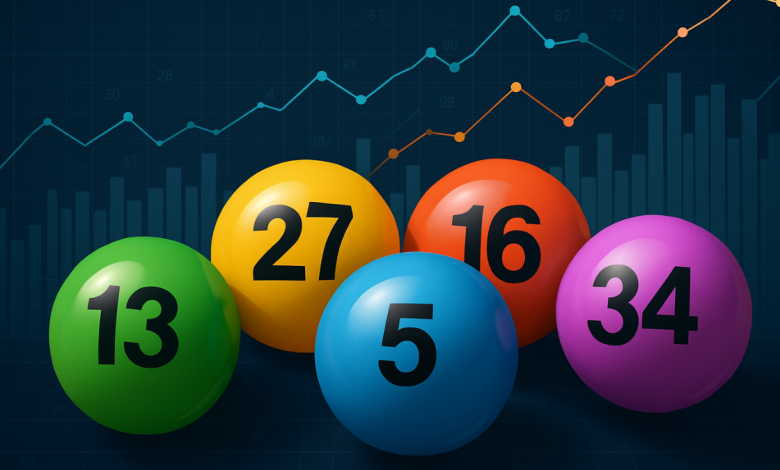
Every week, millions of South Africans play the lottery, dreaming of a life-changing win. While lottery results are random by design, many players are turning to data analysis for lottery insights to choose numbers more strategically. Although data cannot guarantee a win, it can guide how players make their lottery number predictions by offering structure and avoiding common biases.

ALSO READ: The Science Behind “Hot” and “Cold” Numbers in Lottery Draws
Understanding How the Lottery Works
The Ithuba National Lottery uses randomised mechanical and digital systems to ensure that every number has an equal chance of being drawn. This means there is no memory or influence from previous draws. Each game, whether it’s Lotto, Powerball, or Daily Lotto, is independent and based purely on chance.
Despite this, many South Africans still explore statistical trends to inform their number choices. While the randomness of the lottery can’t be overcome, data analysis for lottery results can help players make logical and informed decisions.
What Is Data Analysis for Lottery Numbers?
Data analysis involves studying past draw results to identify patterns and trends. This doesn’t increase the odds of winning, but it can make selections more structured and reduce emotional or biased number choices.
Here are some common patterns players look for:
- Hot Numbers: Frequently drawn numbers over a period.
- Cold Numbers: Numbers that appear less often.
- Balanced Combinations: Mixing odd/even and high/low numbers.
- Repeating Pairs or Triplets: Sets of numbers that appear together more often.
Using these patterns, some players create systems to generate their lottery number predictions, with the goal of playing smarter even if the outcome remains uncertain.
Popular Data Analysis Techniques for Lottery Players
- Frequency Charts
This is one of the most accessible tools. Players track how often numbers appear over several months and use this data to pick those seen as “hot.” While this doesn’t change odds, it adds a layer of structure. - Delta System
Instead of focusing on the numbers themselves, this method examines the differences (or deltas) between consecutive numbers in previous winning combinations. It’s based on the theory that winning numbers often have similar spacing. - Wheeling Systems
Wheeling involves selecting a group of numbers and playing all possible combinations. It improves coverage—especially for secondary prize tiers—but does not improve the odds per ticket. It’s a strategy used for optimising ticket value rather than prediction accuracy. - AI and Machine Learning Models
Advanced users sometimes apply machine learning to historical lottery data. These models try to detect trends, but it’s important to note they can’t accurately predict random outcomes. They are best used as simulations or learning tools rather than genuine predictors.
Using South African Data for Smarter Choices
If you’re interested in trying data analysis for lottery selections, you can start by reviewing past results on platforms like Lotto Numbers South Africa. For example, analysis of recent Powerball results shows numbers like 15 and 23 have appeared more frequently. While this is an interesting observation, remember: it doesn’t mean these numbers are more likely to be drawn again.
To begin your analysis:
- Collect 50 to 100 past results.
- Track frequencies using a spreadsheet.
- Identify number groupings and deltas.
- Balance your selections across odd/even and high/low numbers.
By doing this, your lottery number predictions will be more calculated, rather than based on intuition or superstition.
What Data Analysis Can and Cannot Do
✔️ What it can do:
- Help avoid biased picks (e.g., birthdates or repeated draws).
- Improve your understanding of number trends.
- Add consistency and structure to your playing strategy.
❌ What it cannot do:
- Predict exact future numbers.
- Guarantee wins or improve your odds.
- Beat the system or manipulate draw outcomes.
It’s important to keep realistic expectations. According to Harvard’s Probability course, all lottery draws remain independent events, regardless of past outcomes. No statistical model can override the lottery’s built-in randomness.
READ MORE: The Rise of Online Lotteries and Their Legality in Gauteng
Tools to Help You Analyse Lottery Data
Here are useful resources and tools for South African players:
- ✅ National Lottery Draw History – View full draw records.
- ✅ Lotto Numbers SA – Frequency charts and statistics.
- ✅ Random.org – Learn how randomness works.
- ✅ Excel or Google Sheets – Build your own tracking system.
- ✅ Python or R—for advanced users wanting to run simulations.
While there’s no foolproof method to win the lottery, using data analysis for lottery selections adds a level of strategic thinking. Structured number selection helps you avoid repetitive mistakes and adds more value to your participation. Just remember: every number still has an equal chance. Use the data to guide your play, not as a promise of a win.
Whether you’re playing for fun or with serious hope, well-informed lottery number predictions make the game more engaging.



